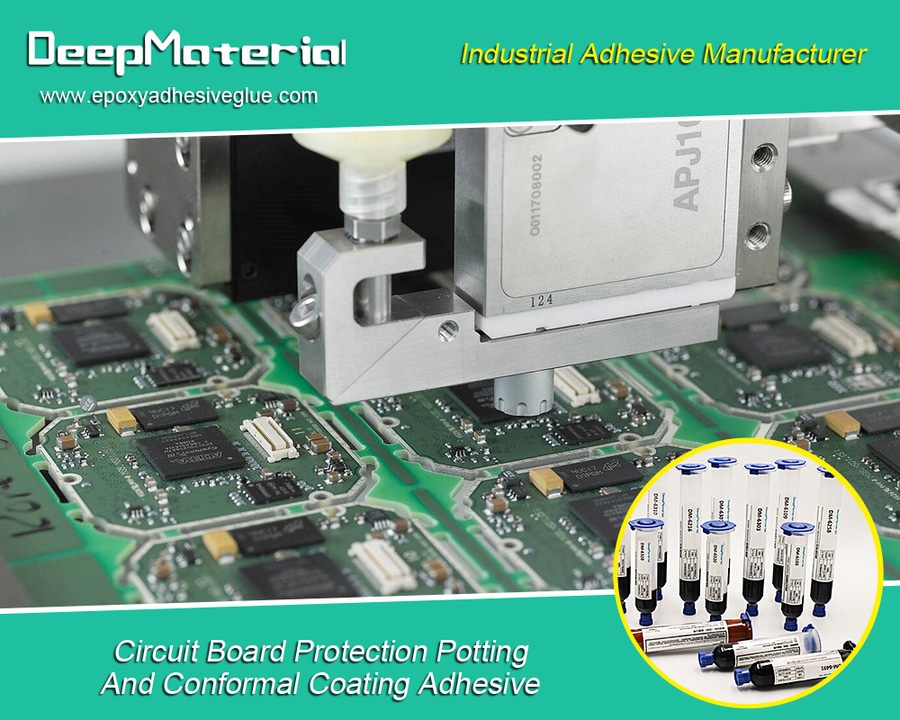
#Industry News
What Is UV Cure Acrylic Conformal Coating For Chip Level Protection
Best UV Cure Acrylic Conformal Coating Adhesive Glue Manufacturer
Conformal coatings have proved to be of great importance in keeping electronic circuit boards protected from harmful elements. When you choose the right coating for your electronic needs, you can rest assured that the devices will be working properly under all conditions.
Acrylic conformal coating is among the most common coatings used for PCBs. The coating is an easy one-part coating that cures fast and imparts dielectric properties, which are impressive, and offers much-needed protection against fungus, dust, and moisture. This conformal coating is popular because of its user-friendliness. It is not only easy to apply but also easy to remove, making repairs very easy too.
The acrylic coatings ted to cure and dry rapidly, reaching the optimum physical properties within minutes and fully within an hour. During curing, the coatings don't give off too much heat; hence, the potential of damaging heat-sensitive components is reduced. The extent of shrinkage during curing is also minimal, as well as the glass transition temperatures.
Acrylic conformal coating advantages
Like the rest of the conformal coatings, the acrylic coating offers excellent protection to circuits against dust and moisture, among other elements. However, it has the main advantage of being cost-effective, easy to use, apply, and rework. With this coating type, you also know that it will protect your board and components against fungus.
Acrylic conformal coating disadvantages
When looking at conformal coatings, you must also weigh the disadvantages. As for acrylic, its greatest downside is lacking chemical resistance. This coating will protect against fungus, dust, and moisture, but it does not have the crosslink density needed to protect against aggressive chemicals like fuel vapors. It makes it very important to check your application requirements when choosing conformal coatings so you can select the most suitable one that will serve your needs without fail.
Acrylic conformal coating removal
Whereas acrylics are thermoplastic resins that offer impressive strengths when used as protective coatings, they are not as strong against solvents. This can be a disadvantage in some areas, but it is also an advantage because removing it is easy; you can remove the coating with basic solvents like acetone.
Comparison with other conformal coatings
Compared with polyurethanes, acrylic's ability to cure rapidly fast makes it a win in most applications. Polyurethanes are, however, superior in protecting against solvents and abrasions. Both have excellent dielectric properties and are good at protecting against moisture.
Compared with silicone, acrylic does not struggle with adhering to substrates, as with silicone. Silicone, on the other hand, has superior protection against moisture, extended temperature limits, and low modulus making it a great conformal coating material.
Compared with epoxy, acrylic's one-part composition makes it more robust. You will only need thinning, whereas, for epoxy, you will require to go through a cumbersome process of measuring and mixing, as well as monitoring pot life. On the other hand, epoxies are durable because they are hard and resistant to solvents; it is why they are loved in marine, oil fields, and engine hoods.
For more about what is uv cure acrylic conformal coating for chip level protection,you can pay a visit to DeepMaterial at https://www.epoxyadhesiveglue.com/what-is-acrylic-conformal-coating/ for more info.





